afterLoad (456.22KB) (4.78ms)
afterInitialise (1.27MB) (51.19ms)
afterRoute (840.55KB) (17.06ms)
beforeRenderComponent com_tags (20.62KB) (294μs)
afterRenderComponent com_tags (1.92MB) (162ms)
afterDispatch (27.45KB) (5.39ms)
beforeRenderRawModule mod_articles_category (READ MORE...) (425.11KB) (23.94ms)
Before Access::preloadComponents (all components) (50.9KB) (5.57ms)
After Access::preloadComponents (all components) (103.05KB) (4.8ms)
Before Access::getAssetRules (id:8 name:com_content) (840B) (26μs)
After Access::getAssetRules (id:8 name:com_content) (7.05KB) (56μs)
afterRenderRawModule mod_articles_category (READ MORE...) (18.34KB) (163ms)
beforeRenderRawModule mod_custom (BOOST YOUR IMMUNE DEFENSE) (6.45KB) (30μs)
afterRenderRawModule mod_custom (BOOST YOUR IMMUNE DEFENSE) (3.8KB) (175μs)
beforeRenderRawModule mod_tags_popular (Search) (2.36KB) (14μs)
afterRenderRawModule mod_tags_popular (Search) (40.85KB) (201ms)
beforeRenderRawModule mod_custom (Get additionel and more detailed knowledge ) (816B) (33μs)
afterRenderRawModule mod_custom (Get additionel and more detailed knowledge ) (1.55KB) (56μs)
beforeRenderRawModule mod_custom (Overview of vitamins, minerals, and essential fatty acids) (768B) (12μs)
afterRenderRawModule mod_custom (Overview of vitamins, minerals, and essential fatty acids) (960B) (24μs)
beforeRenderRawModule mod_custom (Q10 goes by many names) (608B) (10μs)
afterRenderRawModule mod_custom (Q10 goes by many names) (928B) (19μs)
beforeRenderRawModule mod_custom (Check this before you buy a Q10 product) (752B) (9μs)
afterRenderRawModule mod_custom (Check this before you buy a Q10 product) (944B) (18μs)
beforeRenderRawModule mod_custom (Are you taking supplements) (736B) (9μs)
afterRenderRawModule mod_custom (Are you taking supplements) (1.03KB) (18μs)
beforeRenderRawModule mod_custom (Weight loss that works) (736B) (9μs)
afterRenderRawModule mod_custom (Weight loss that works) (1.03KB) (18μs)
beforeRenderRawModule mod_custom (Antiaging) (720B) (8μs)
afterRenderRawModule mod_custom (Antiaging) (912B) (17μs)
beforeRenderRawModule mod_menu (Are you getting enough vitamins and minerals?) (2.5KB) (12μs)
afterRenderRawModule mod_menu (Are you getting enough vitamins and minerals?) (22.39KB) (1.68ms)
beforeRenderRawModule mod_menu (The key to increased well-being) (736B) (26μs)
afterRenderRawModule mod_menu (The key to increased well-being) (17.83KB) (291μs)
beforeRenderRawModule mod_menu (Did you know.....) (720B) (15μs)
afterRenderRawModule mod_menu (Did you know.....) (31.02KB) (1.37ms)
beforeRenderRawModule mod_custom (Useful Links) (1.06KB) (26μs)
afterRenderRawModule mod_custom (Useful Links) (1.02KB) (44μs)
beforeRenderRawModule mod_custom (Chronic fatigue tied Alan to his bed but Q10 capsules saved him:) (244.28KB) (4.75ms)
afterRenderRawModule mod_custom (Chronic fatigue tied Alan to his bed but Q10 capsules saved him:) (1.06KB) (41μs)
beforeRenderModule mod_custom (Chronic fatigue tied Alan to his bed but Q10 capsules saved him:) (768B) (5μs)
afterRenderModule mod_custom (Chronic fatigue tied Alan to his bed but Q10 capsules saved him:) (1.3KB) (75μs)
beforeRenderRawModule mod_custom (Cholesterol-lowering without side effects:) (368B) (13μs)
afterRenderRawModule mod_custom (Cholesterol-lowering without side effects:) (1.06KB) (23μs)
beforeRenderModule mod_custom (Cholesterol-lowering without side effects:) (752B) (2μs)
afterRenderModule mod_custom (Cholesterol-lowering without side effects:) (1.28KB) (29μs)
beforeRenderModule mod_articles_category (READ MORE...) (20.82KB) (346μs)
afterRenderModule mod_articles_category (READ MORE...) (1.25KB) (41μs)
beforeRenderModule mod_custom (BOOST YOUR IMMUNE DEFENSE) (6.81KB) (12μs)
afterRenderModule mod_custom (BOOST YOUR IMMUNE DEFENSE) (1.28KB) (25μs)
beforeRenderModule mod_tags_popular (Search) (1.98KB) (11μs)
afterRenderModule mod_tags_popular (Search) (1.27KB) (22μs)
beforeRenderModule mod_custom (Get additionel and more detailed knowledge ) (1.17KB) (10μs)
afterRenderModule mod_custom (Get additionel and more detailed knowledge ) (1.3KB) (21μs)
beforeRenderModule mod_custom (Overview of vitamins, minerals, and essential fatty acids) (384B) (9μs)
afterRenderModule mod_custom (Overview of vitamins, minerals, and essential fatty acids) (1.31KB) (21μs)
beforeRenderModule mod_custom (Q10 goes by many names) (208B) (8μs)
afterRenderModule mod_custom (Q10 goes by many names) (1.27KB) (21μs)
beforeRenderModule mod_custom (Check this before you buy a Q10 product) (352B) (9μs)
afterRenderModule mod_custom (Check this before you buy a Q10 product) (1.28KB) (21μs)
beforeRenderModule mod_custom (Are you taking supplements) (352B) (8μs)
afterRenderModule mod_custom (Are you taking supplements) (1.28KB) (20μs)
beforeRenderModule mod_custom (Weight loss that works) (336B) (9μs)
afterRenderModule mod_custom (Weight loss that works) (1.27KB) (20μs)
beforeRenderModule mod_custom (Antiaging) (336B) (9μs)
afterRenderModule mod_custom (Antiaging) (3.77KB) (21μs)
beforeRenderModule mod_menu (Are you getting enough vitamins and minerals?) (2.13KB) (11μs)
afterRenderModule mod_menu (Are you getting enough vitamins and minerals?) (1.3KB) (20μs)
beforeRenderModule mod_menu (The key to increased well-being) (352B) (11μs)
afterRenderModule mod_menu (The key to increased well-being) (1.28KB) (20μs)
beforeRenderModule mod_menu (Did you know.....) (336B) (10μs)
afterRenderModule mod_menu (Did you know.....) (1.27KB) (20μs)
beforeRenderModule mod_custom (Useful Links) (1.44KB) (9μs)
afterRenderModule mod_custom (Useful Links) (1.27KB) (21μs)
beforeRenderRawModule mod_menu (Main Menu - English) (25.14KB) (1.84ms)
afterRenderRawModule mod_menu (Main Menu - English) (186.95KB) (3.7ms)
beforeRenderModule mod_menu (Main Menu - English) (720B) (5μs)
afterRenderModule mod_menu (Main Menu - English) (4.86KB) (67μs)
beforeRenderRawModule mod_languages (Sprogskift) (3.94KB) (21μs)
afterRenderRawModule mod_languages (Sprogskift) (22.56KB) (2.91ms)
beforeRenderModule mod_languages (Sprogskift) (720B) (5μs)
afterRenderModule mod_languages (Sprogskift) (5.31KB) (22μs)
beforeRenderRawModule mod_finder () (6.34KB) (11μs)
afterRenderRawModule mod_finder () (128.59KB) (4.25ms)
beforeRenderModule mod_finder () (704B) (5μs)
afterRenderModule mod_finder () (3.29KB) (35μs)
beforeRenderRawModule mod_custom () (6.62KB) (144μs)
afterRenderRawModule mod_custom () (22.64KB) (3.15ms)
beforeRenderModule mod_custom () (704B) (6μs)
afterRenderModule mod_custom () (1.23KB) (56μs)
beforeRenderRawModule mod_menu (Main Menu - English) (5.07KB) (117μs)
afterRenderRawModule mod_menu (Main Menu - English) (6.3KB) (724μs)
beforeRenderModule mod_menu (Main Menu - English) (720B) (4μs)
afterRenderModule mod_menu (Main Menu - English) (1.25KB) (45μs)
beforeRenderRawModule mod_languages (Sprogskift Mobil) (912B) (1.1ms)
afterRenderRawModule mod_languages (Sprogskift Mobil) (3.89KB) (720μs)
beforeRenderModule mod_languages (Sprogskift Mobil) (720B) (5μs)
afterRenderModule mod_languages (Sprogskift Mobil) (1.27KB) (36μs)
beforeRenderRawModule mod_finder () (2.3KB) (9μs)
afterRenderRawModule mod_finder () (6.29KB) (1.51ms)
beforeRenderModule mod_finder () (704B) (5μs)
afterRenderModule mod_finder () (1.23KB) (51μs)
beforeRenderRawModule mod_custom () (8.66KB) (185μs)
afterRenderRawModule mod_custom () (904B) (146μs)
beforeRenderModule mod_custom () (704B) (2μs)
afterRenderModule mod_custom () (2.43KB) (26μs)
beforeRenderRawModule mod_custom () (688B) (83μs)
afterRenderRawModule mod_custom () (896B) (96μs)
beforeRenderModule mod_custom () (704B) (3μs)
afterRenderModule mod_custom () (2.71KB) (1.14ms)
afterRender (410.33KB) (15.69ms)
| 1 x afterRenderRawModule mod_tags_popular (Search) (40.85KB) (28.96%) | 200.82ms |
| 1 x afterRenderRawModule mod_articles_category (READ MORE...) (18.34KB) (23.53%) | 163.21ms |
| 1 x afterRenderComponent com_tags (1.92MB) (23.33%) | 161.84ms |
| 1 x afterInitialise (1.27MB) (7.38%) | 51.19ms |
| 1 x beforeRenderRawModule mod_articles_category (READ MORE...) (425.11KB) (3.45%) | 23.94ms |
| 1 x afterRoute (840.55KB) (2.46%) | 17.06ms |
| 1 x afterRender (410.33KB) (2.26%) | 15.69ms |
| 1 x Before Access::preloadComponents (all components) (50.9KB) (0.8%) | 5.57ms |
| 1 x afterDispatch (27.45KB) (0.78%) | 5.39ms |
| 1 x After Access::preloadComponents (all components) (103.05KB) (0.69%) | 4.80ms |
| 1 x afterLoad (456.22KB) (0.69%) | 4.78ms |
| 1 x beforeRenderRawModule mod_custom (Chronic fatigue tied Alan to his bed but Q10 capsules saved him:) (244.28KB) (0.68%) | 4.75ms |
| 1 x afterRenderRawModule mod_finder () (128.59KB) (0.61%) | 4.25ms |
| 1 x afterRenderRawModule mod_menu (Main Menu - English) (186.95KB) (0.53%) | 3.70ms |
| 1 x afterRenderRawModule mod_custom () (22.64KB) (0.45%) | 3.15ms |
| 1 x afterRenderRawModule mod_languages (Sprogskift) (22.56KB) (0.42%) | 2.91ms |
| 1 x beforeRenderRawModule mod_menu (Main Menu - English) (25.14KB) (0.26%) | 1.84ms |
| 1 x afterRenderRawModule mod_menu (Are you getting enough vitamins and minerals?) (22.39KB) (0.24%) | 1.68ms |
| 1 x afterRenderRawModule mod_finder () (6.29KB) (0.22%) | 1.51ms |
| 1 x afterRenderRawModule mod_menu (Did you know.....) (31.02KB) (0.2%) | 1.37ms |
| 1 x afterRenderModule mod_custom () (2.71KB) (0.16%) | 1.14ms |
| 1 x beforeRenderRawModule mod_languages (Sprogskift Mobil) (912B) (0.16%) | 1.10ms |
| 1 x afterRenderRawModule mod_menu (Main Menu - English) (6.3KB) (0.1%) | 724μs |
| 1 x afterRenderRawModule mod_languages (Sprogskift Mobil) (3.89KB) (0.1%) | 720μs |
| 1 x beforeRenderModule mod_articles_category (READ MORE...) (20.82KB) (0.05%) | 346μs |
| 1 x beforeRenderComponent com_tags (20.62KB) (0.04%) | 294μs |
| 1 x afterRenderRawModule mod_menu (The key to increased well-being) (17.83KB) (0.04%) | 291μs |
| 1 x beforeRenderRawModule mod_custom () (8.66KB) (0.03%) | 185μs |
| 1 x afterRenderRawModule mod_custom (BOOST YOUR IMMUNE DEFENSE) (3.8KB) (0.03%) | 175μs |
| 1 x afterRenderRawModule mod_custom () (904B) (0.02%) | 146μs |
| 1 x beforeRenderRawModule mod_custom () (6.62KB) (0.02%) | 144μs |
| 1 x beforeRenderRawModule mod_menu (Main Menu - English) (5.07KB) (0.02%) | 117μs |
| 1 x afterRenderRawModule mod_custom () (896B) (0.01%) | 96μs |
| 1 x beforeRenderRawModule mod_custom () (688B) (0.01%) | 83μs |
| 1 x afterRenderModule mod_custom (Chronic fatigue tied Alan to his bed but Q10 capsules saved him:) (1.3KB) (0.01%) | 75μs |
| 1 x afterRenderModule mod_menu (Main Menu - English) (4.86KB) (0.01%) | 67μs |
| 1 x After Access::getAssetRules (id:8 name:com_content) (7.05KB) (0.01%) | 56μs |
| 1 x afterRenderRawModule mod_custom (Get additionel and more detailed knowledge ) (1.55KB) (0.01%) | 56μs |
| 1 x afterRenderModule mod_custom () (1.23KB) (0.01%) | 56μs |
| 1 x afterRenderModule mod_finder () (1.23KB) (0.01%) | 51μs |
| 1 x afterRenderModule mod_menu (Main Menu - English) (1.25KB) (0.01%) | 45μs |
| 1 x afterRenderRawModule mod_custom (Useful Links) (1.02KB) (0.01%) | 44μs |
| 1 x afterRenderRawModule mod_custom (Chronic fatigue tied Alan to his bed but Q10 capsules saved him:) (1.06KB) (0.01%) | 41μs |
| 1 x afterRenderModule mod_articles_category (READ MORE...) (1.25KB) (0.01%) | 41μs |
| 1 x afterRenderModule mod_languages (Sprogskift Mobil) (1.27KB) (0.01%) | 36μs |
| 1 x afterRenderModule mod_finder () (3.29KB) (0.01%) | 35μs |
| 1 x beforeRenderRawModule mod_custom (Get additionel and more detailed knowledge ) (816B) (0%) | 33μs |
| 1 x beforeRenderRawModule mod_custom (BOOST YOUR IMMUNE DEFENSE) (6.45KB) (0%) | 30μs |
| 1 x afterRenderModule mod_custom (Cholesterol-lowering without side effects:) (1.28KB) (0%) | 29μs |
| 1 x Before Access::getAssetRules (id:8 name:com_content) (840B) (0%) | 26μs |
| 1 x beforeRenderRawModule mod_menu (The key to increased well-being) (736B) (0%) | 26μs |
| 1 x beforeRenderRawModule mod_custom (Useful Links) (1.06KB) (0%) | 26μs |
| 1 x afterRenderModule mod_custom () (2.43KB) (0%) | 26μs |
| 1 x afterRenderModule mod_custom (BOOST YOUR IMMUNE DEFENSE) (1.28KB) (0%) | 25μs |
| 1 x afterRenderRawModule mod_custom (Overview of vitamins, minerals, and essential fatty acids) (960B) (0%) | 24μs |
| 1 x afterRenderRawModule mod_custom (Cholesterol-lowering without side effects:) (1.06KB) (0%) | 23μs |
| 1 x afterRenderModule mod_tags_popular (Search) (1.27KB) (0%) | 22μs |
| 1 x afterRenderModule mod_languages (Sprogskift) (5.31KB) (0%) | 22μs |
| 1 x afterRenderModule mod_custom (Antiaging) (3.77KB) (0%) | 21μs |
| 1 x afterRenderModule mod_custom (Get additionel and more detailed knowledge ) (1.3KB) (0%) | 21μs |
| 1 x afterRenderModule mod_custom (Overview of vitamins, minerals, and essential fatty acids) (1.31KB) (0%) | 21μs |
| 1 x afterRenderModule mod_custom (Q10 goes by many names) (1.27KB) (0%) | 21μs |
| 1 x afterRenderModule mod_custom (Check this before you buy a Q10 product) (1.28KB) (0%) | 21μs |
| 1 x afterRenderModule mod_custom (Useful Links) (1.27KB) (0%) | 21μs |
| 1 x beforeRenderRawModule mod_languages (Sprogskift) (3.94KB) (0%) | 21μs |
| 1 x afterRenderModule mod_custom (Are you taking supplements) (1.28KB) (0%) | 20μs |
| 1 x afterRenderModule mod_custom (Weight loss that works) (1.27KB) (0%) | 20μs |
| 1 x afterRenderModule mod_menu (Are you getting enough vitamins and minerals?) (1.3KB) (0%) | 20μs |
| 1 x afterRenderModule mod_menu (The key to increased well-being) (1.28KB) (0%) | 20μs |
| 1 x afterRenderModule mod_menu (Did you know.....) (1.27KB) (0%) | 20μs |
| 1 x afterRenderRawModule mod_custom (Q10 goes by many names) (928B) (0%) | 19μs |
| 1 x afterRenderRawModule mod_custom (Weight loss that works) (1.03KB) (0%) | 18μs |
| 1 x afterRenderRawModule mod_custom (Check this before you buy a Q10 product) (944B) (0%) | 18μs |
| 1 x afterRenderRawModule mod_custom (Are you taking supplements) (1.03KB) (0%) | 18μs |
| 1 x afterRenderRawModule mod_custom (Antiaging) (912B) (0%) | 17μs |
| 1 x beforeRenderRawModule mod_menu (Did you know.....) (720B) (0%) | 15μs |
| 1 x beforeRenderRawModule mod_tags_popular (Search) (2.36KB) (0%) | 14μs |
| 1 x beforeRenderRawModule mod_custom (Cholesterol-lowering without side effects:) (368B) (0%) | 13μs |
| 1 x beforeRenderRawModule mod_menu (Are you getting enough vitamins and minerals?) (2.5KB) (0%) | 12μs |
| 1 x beforeRenderRawModule mod_custom (Overview of vitamins, minerals, and essential fatty acids) (768B) (0%) | 12μs |
| 1 x beforeRenderModule mod_custom (BOOST YOUR IMMUNE DEFENSE) (6.81KB) (0%) | 12μs |
| 1 x beforeRenderModule mod_tags_popular (Search) (1.98KB) (0%) | 11μs |
| 1 x beforeRenderModule mod_menu (Are you getting enough vitamins and minerals?) (2.13KB) (0%) | 11μs |
| 1 x beforeRenderModule mod_menu (The key to increased well-being) (352B) (0%) | 11μs |
| 1 x beforeRenderRawModule mod_finder () (6.34KB) (0%) | 11μs |
| 3 x beforeRenderModule mod_custom () (704B) (0%) | 11μs |
| 1 x beforeRenderRawModule mod_custom (Q10 goes by many names) (608B) (0%) | 10μs |
| 1 x beforeRenderModule mod_custom (Get additionel and more detailed knowledge ) (1.17KB) (0%) | 10μs |
| 1 x beforeRenderModule mod_menu (Did you know.....) (336B) (0%) | 10μs |
| 2 x beforeRenderModule mod_finder () (704B) (0%) | 10μs |
| 1 x beforeRenderRawModule mod_custom (Check this before you buy a Q10 product) (752B) (0%) | 9μs |
| 1 x beforeRenderRawModule mod_custom (Are you taking supplements) (736B) (0%) | 9μs |
| 1 x beforeRenderRawModule mod_custom (Weight loss that works) (736B) (0%) | 9μs |
| 1 x beforeRenderModule mod_custom (Overview of vitamins, minerals, and essential fatty acids) (384B) (0%) | 9μs |
| 1 x beforeRenderModule mod_custom (Check this before you buy a Q10 product) (352B) (0%) | 9μs |
| 1 x beforeRenderModule mod_custom (Weight loss that works) (336B) (0%) | 9μs |
| 1 x beforeRenderModule mod_custom (Useful Links) (1.44KB) (0%) | 9μs |
| 2 x beforeRenderModule mod_menu (Main Menu - English) (720B) (0%) | 9μs |
| 1 x beforeRenderRawModule mod_finder () (2.3KB) (0%) | 9μs |
| 1 x beforeRenderModule mod_custom (Antiaging) (336B) (0%) | 9μs |
| 1 x beforeRenderModule mod_custom (Q10 goes by many names) (208B) (0%) | 8μs |
| 1 x beforeRenderRawModule mod_custom (Antiaging) (720B) (0%) | 8μs |
| 1 x beforeRenderModule mod_custom (Are you taking supplements) (352B) (0%) | 8μs |
| 1 x beforeRenderModule mod_custom (Chronic fatigue tied Alan to his bed but Q10 capsules saved him:) (768B) (0%) | 5μs |
| 1 x beforeRenderModule mod_languages (Sprogskift) (720B) (0%) | 5μs |
| 1 x beforeRenderModule mod_languages (Sprogskift Mobil) (720B) (0%) | 5μs |
| 1 x beforeRenderModule mod_custom (Cholesterol-lowering without side effects:) (752B) (0%) | 2μs |
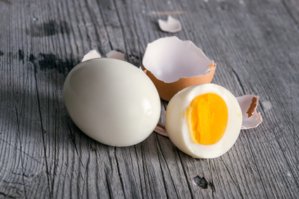 A new Chinese study that is published in the science journal, Heart, shows that eating an egg every day can lower your risk of stroke by 26 percent. The reason is that eggs contain selenium and other powerful antioxidants that protect against atherosclerosis, and we do not get all that much selenium from our diets. Therefore, forget all about the cholesterol scare and warnings against eating eggs. That dietary advice is outdated and has done more harm than good.
A new Chinese study that is published in the science journal, Heart, shows that eating an egg every day can lower your risk of stroke by 26 percent. The reason is that eggs contain selenium and other powerful antioxidants that protect against atherosclerosis, and we do not get all that much selenium from our diets. Therefore, forget all about the cholesterol scare and warnings against eating eggs. That dietary advice is outdated and has done more harm than good.







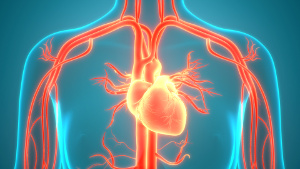 Life cannot exist without
Life cannot exist without 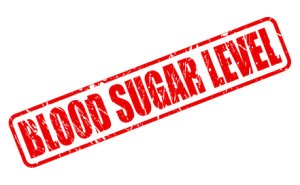 A British study has shown that elevated blood sugar levels cause blood vessels to constrict. This strains the heart, raises blood pressure, and reduces the blood supply to other organs. It is therefore sugar and not saturated fat that is the cause of cardiovascular disease. We should be far more focused on how to control our blood sugar levels. Proper diet means a lot, and so does adequate intake of a particular essential trace element that appears to have a special role.
A British study has shown that elevated blood sugar levels cause blood vessels to constrict. This strains the heart, raises blood pressure, and reduces the blood supply to other organs. It is therefore sugar and not saturated fat that is the cause of cardiovascular disease. We should be far more focused on how to control our blood sugar levels. Proper diet means a lot, and so does adequate intake of a particular essential trace element that appears to have a special role.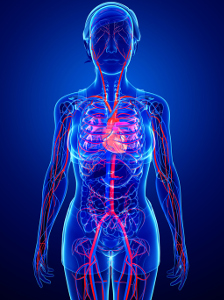 Fish oil contains the long-chained
Fish oil contains the long-chained 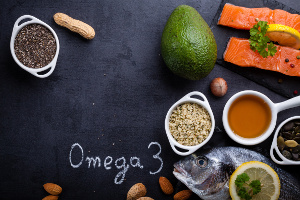 Heart failure is a disease with a variety of different symptoms and a high mortality rate because the heart’s pumping function is impaired. Heart failure is also characterized by chronic inflammation that worsens the prognosis. Apparently, fish oil supplementation can reduce chronic inflammation, according to a meta-analysis that is published in Heart Failure Reviews. In fact, eating more
Heart failure is a disease with a variety of different symptoms and a high mortality rate because the heart’s pumping function is impaired. Heart failure is also characterized by chronic inflammation that worsens the prognosis. Apparently, fish oil supplementation can reduce chronic inflammation, according to a meta-analysis that is published in Heart Failure Reviews. In fact, eating more  Women who eat a healthy diet may prevent or delay their physical deterioration. But what type of diet has the best effect? And how can specific nutrients, which are difficult to get from the diet, improve the overall effect?
Women who eat a healthy diet may prevent or delay their physical deterioration. But what type of diet has the best effect? And how can specific nutrients, which are difficult to get from the diet, improve the overall effect?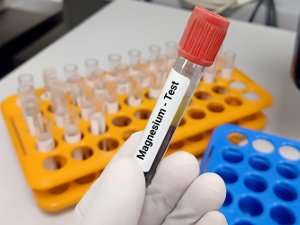 Chronic heart failure is a clinical syndrome that involves, among other things, reduced heart pumping function. The condition is often life-threatening. A new study that is published in Journal of the American Heart Association looks closer at how supplementation with
Chronic heart failure is a clinical syndrome that involves, among other things, reduced heart pumping function. The condition is often life-threatening. A new study that is published in Journal of the American Heart Association looks closer at how supplementation with 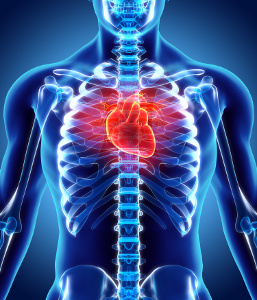 Cardiovascular disease is the leading cause of death worldwide, and our diet and lifestyle play a major role. According to an Australian study published in British Medical Journal, high-dosed
Cardiovascular disease is the leading cause of death worldwide, and our diet and lifestyle play a major role. According to an Australian study published in British Medical Journal, high-dosed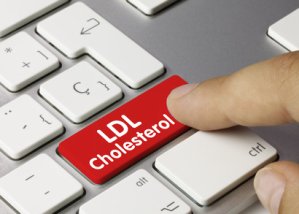 Medical science has claimed for decades that elevated cholesterol levels pose a health threat, especially if you have too much of the so-called “bad” cholesterol – or LDL (Low-Density Lipoprotein). However, a team of international experts is now arguing that this theory is exaggerated. In fact, the experts specifically advise against taking cholesterol-lowering statins. Meanwhile, science is focused on how to improve the safety of statins by combining them with supplements of
Medical science has claimed for decades that elevated cholesterol levels pose a health threat, especially if you have too much of the so-called “bad” cholesterol – or LDL (Low-Density Lipoprotein). However, a team of international experts is now arguing that this theory is exaggerated. In fact, the experts specifically advise against taking cholesterol-lowering statins. Meanwhile, science is focused on how to improve the safety of statins by combining them with supplements of  It is commonly known that degenerative diseases such as cardiovascular disease, diabetes, kidney ailments, and liver diseases are often linked to poor quality of life and shorter lifespan. Supplementing with Q10, possibly in combination with selenium yeast, may have a positive influence on the mentioned conditions and lower your risk of premature death by as much as 50 percent or more. In fact, Q10 can help delay the ageing processes by protecting the heart, cardiovascular system, and cells, according to a large review article published online by NCBI (National Center for Biotechnology Information). As mentioned in this article, it is essential to use supplements that are pharmaceutical-grade in order to ensure proper absorption in blood and tissue.
It is commonly known that degenerative diseases such as cardiovascular disease, diabetes, kidney ailments, and liver diseases are often linked to poor quality of life and shorter lifespan. Supplementing with Q10, possibly in combination with selenium yeast, may have a positive influence on the mentioned conditions and lower your risk of premature death by as much as 50 percent or more. In fact, Q10 can help delay the ageing processes by protecting the heart, cardiovascular system, and cells, according to a large review article published online by NCBI (National Center for Biotechnology Information). As mentioned in this article, it is essential to use supplements that are pharmaceutical-grade in order to ensure proper absorption in blood and tissue.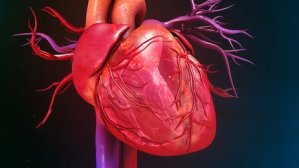 It is essential that your heart is able to pump optimally throughout life. A study from Medical College of Georgia, Augusta University, the United States, has just shown that a diet with low levels of
It is essential that your heart is able to pump optimally throughout life. A study from Medical College of Georgia, Augusta University, the United States, has just shown that a diet with low levels of 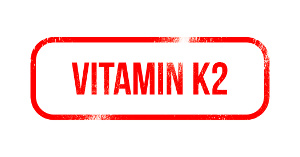 Your birth attest reveals your actual age but your biological age gives a more accurate picture of your health and life expectancy. Our biological age and cardiovascular health are closely connected, with atherosclerosis and arterial stiffness representing a progressive process that eventually leads to the majority of deaths. Nonetheless, you can do a lot yourself by making sure to get sufficient amounts the nutrients that are most vital for good cardiovascular health. In this article, we will look closer at some current studies of vitamin K2, Q10, selenium, and omega-3, all of which are essential nutrients that prevent, each in their own way, atherosclerosis, arterial stiffness, and premature death as a result of having high heart age.
Your birth attest reveals your actual age but your biological age gives a more accurate picture of your health and life expectancy. Our biological age and cardiovascular health are closely connected, with atherosclerosis and arterial stiffness representing a progressive process that eventually leads to the majority of deaths. Nonetheless, you can do a lot yourself by making sure to get sufficient amounts the nutrients that are most vital for good cardiovascular health. In this article, we will look closer at some current studies of vitamin K2, Q10, selenium, and omega-3, all of which are essential nutrients that prevent, each in their own way, atherosclerosis, arterial stiffness, and premature death as a result of having high heart age.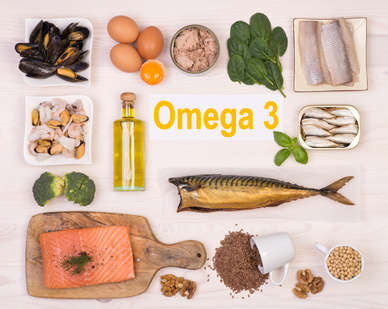 It pays off to make sure to get enough
It pays off to make sure to get enough 
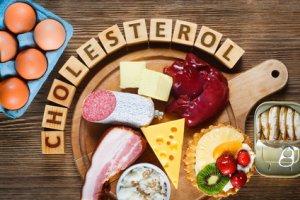 No matter how you twist and turn it, cholesterol is an essential substance, and we humans produce most of it ourselves. What is important is to make sure that the cholesterol we have in our blood does not oxidize, and that is something which
No matter how you twist and turn it, cholesterol is an essential substance, and we humans produce most of it ourselves. What is important is to make sure that the cholesterol we have in our blood does not oxidize, and that is something which 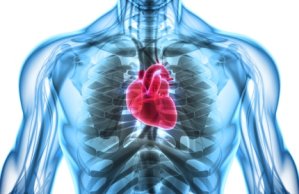
 The number of seniors in the world is growing. It hardly comes as a surprise that old people wish to stay mentally and physically fit and enjoy every minute of the of life. Nonetheless, many middle-aged and older people feel tired and lethargic, or they suffer from chronic diseases that impair their quality of life and are associated with shorter life expectancy. In his book, Coenzyme Q10 – An Insider’s Guide, Dr. William V. Judy looks closer at how
The number of seniors in the world is growing. It hardly comes as a surprise that old people wish to stay mentally and physically fit and enjoy every minute of the of life. Nonetheless, many middle-aged and older people feel tired and lethargic, or they suffer from chronic diseases that impair their quality of life and are associated with shorter life expectancy. In his book, Coenzyme Q10 – An Insider’s Guide, Dr. William V. Judy looks closer at how 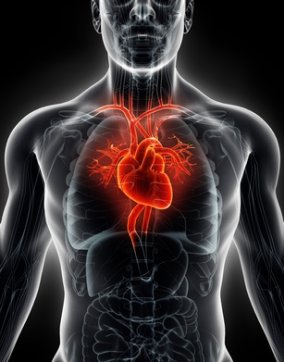 Many people suffer from chronic heart failure - often without knowing it. Numerous studies have shown that supplementing with
Many people suffer from chronic heart failure - often without knowing it. Numerous studies have shown that supplementing with 

 Even though sun lovers have an increased risk of developing skin cancer, a recent Swedish study shows that those who sunbathe the most have a lower risk of dying of heart disease and other ailments. Therefore, be sure to get plenty of sun while you can so your body can produce generous amounts of
Even though sun lovers have an increased risk of developing skin cancer, a recent Swedish study shows that those who sunbathe the most have a lower risk of dying of heart disease and other ailments. Therefore, be sure to get plenty of sun while you can so your body can produce generous amounts of  Most people lack
Most people lack 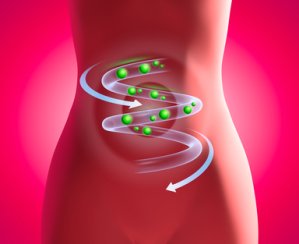 ugh there are two forms of coenzyme Q10 in the body - ubiquinone and ubiquinol - only one of them is able to document an effect. This was recently ascertained by one of the leading Q10 researchers in the world.
ugh there are two forms of coenzyme Q10 in the body - ubiquinone and ubiquinol - only one of them is able to document an effect. This was recently ascertained by one of the leading Q10 researchers in the world.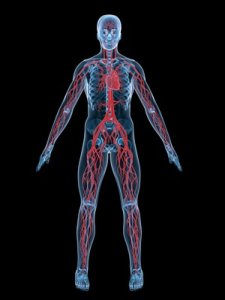 Lack of vitamin K2 increases your risk of stiff arteries and atherosclerosis, which is the leading cause of death worldwide. This was observed in two new studies, one that is published in the American Journal of Hypertension, the other in the journal Nephron. A third study that is published in Clinical Nutrition reveals that daily supplementation with vitamin K2 lowers the risk of early death caused by cardiovascular disease. Our diet used to provide substantially more vitamin K2 from fermented foods than now, and this type of food deserves a comeback. It is also important to know the difference between vitamin K1 and vitamin K2.
Lack of vitamin K2 increases your risk of stiff arteries and atherosclerosis, which is the leading cause of death worldwide. This was observed in two new studies, one that is published in the American Journal of Hypertension, the other in the journal Nephron. A third study that is published in Clinical Nutrition reveals that daily supplementation with vitamin K2 lowers the risk of early death caused by cardiovascular disease. Our diet used to provide substantially more vitamin K2 from fermented foods than now, and this type of food deserves a comeback. It is also important to know the difference between vitamin K1 and vitamin K2.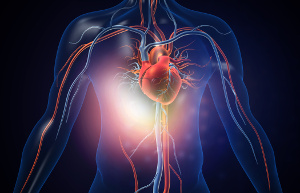 Cardiovascular disease is still the leading cause of death, and both diet and lifestyle are of huge importance. According to a new meta-analysis, fish oil, folic acid, and Q10 are some of nutrients with the greatest potential to lower the risk. It is important to underline that supplements are not likely to make much of a difference if the dosage is too low or if the quality of the preparations is poor.
Cardiovascular disease is still the leading cause of death, and both diet and lifestyle are of huge importance. According to a new meta-analysis, fish oil, folic acid, and Q10 are some of nutrients with the greatest potential to lower the risk. It is important to underline that supplements are not likely to make much of a difference if the dosage is too low or if the quality of the preparations is poor.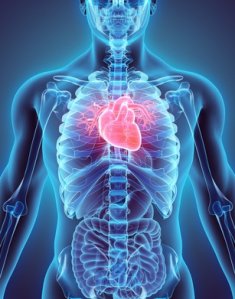
 "After about one week of taking the Q10 supplement I could feel a huge difference," says 23-year old Alan Piccini, who has been suffering from extreme fatigue and muscle aches ever since he was a child.
"After about one week of taking the Q10 supplement I could feel a huge difference," says 23-year old Alan Piccini, who has been suffering from extreme fatigue and muscle aches ever since he was a child. “Taking capsules with co-enzyme Q10 has freed me of the severe side effects of my cholesterol lowering medicine,” Mrs Franken explains.
“Taking capsules with co-enzyme Q10 has freed me of the severe side effects of my cholesterol lowering medicine,” Mrs Franken explains.